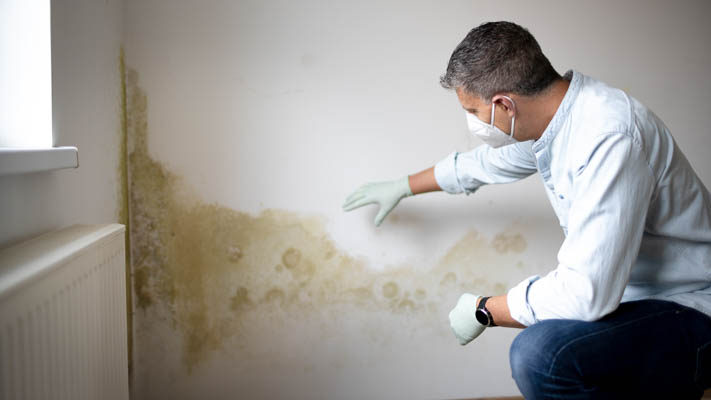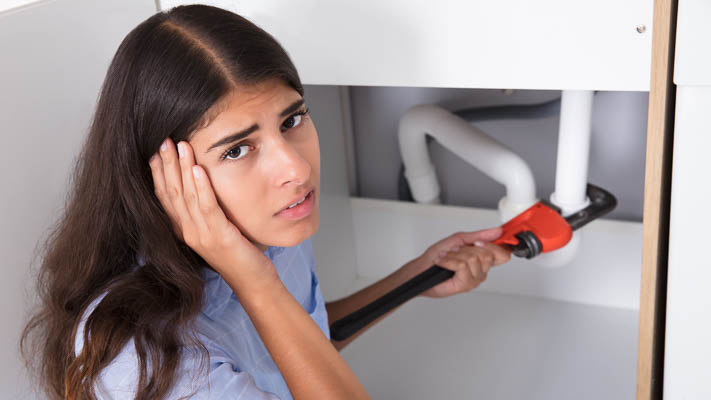What Is Hazard Insurance?
Hazard insurance is a component of your homeowners insurance policy that covers the physical structure of your home from specific dangers, commonly referred to as "hazards." These include events like:
- Flooding
- Fire and smoke
- Wind and hail
- Vandalism and theft
- Explosions or falling objects
In most cases, mortgage lenders require hazard insurance as a basic condition of the home loan. It's designed to help you rebuild or repair your home after a covered loss.
However, hazard insurance does not automatically cover plumbing failures. This is even less likely if your home has outdated or high-risk plumbing systems like polybutylene. That's where things can get complicated for PB pipe homeowners.
Does Hazard Insurance Cover Homes With PB Pipes?
In short: hazard insurance may not fully protect homes with PB piping—or may exclude key types of damage altogether.
PB pipes, installed between the late 1970s and mid-1990s, have a documented history of sudden and catastrophic failure. Years of chemical degradation from treated water, combined with flawed fittings, make these pipes prone to unexpected leaks and bursts.
Here's what insurance companies often do when they learn a home has PB plumbing:
- Exclude water damage coverage altogether.
- Deny new policies or cancel existing ones.
- Require full repipe as a condition of continued coverage.
Even if your hazard insurance policy initially accepts your application, your provider may still limit or exclude coverage for "sudden and accidental" water damage from PB pipes—and outright deny claims from slow or preventable leaks.
In effect, while hazard insurance might protect your home from fires or storms, it likely won't shield you from one of the most common causes of damage in PB-plumbed homes: water leaks.
What To Do If Hazard Insurance Won't Cover PB Pipes?
If your insurer refuses coverage or demands a repipe, don't panic—but don't ignore the warning either.
Here's what to do:
1. Confirm the Plumbing Type
If you're unsure whether you have polybutylene pipes, look for gray, flexible plastic piping typically labeled "PB2110." You can do this by checking near your water heater, under sinks, or behind washing machines—or you can have a licensed plumber inspect your system for confirmation.
2. Review Your Insurance Policy
Go over your policy documents or call your insurer to ask about specific exclusions related to PB piping and the conditions for water damage coverage. It's also important to ask about repipe requirements for the renewal of your home's insurance policy.
3. Weigh the Risks of Keeping PB Pipes
Keeping PB pipes comes with numerous risks, including the increased likelihood of hidden leaks causing mold and wall/floor damage, denied insurance claims (even for sudden leaks), higher premiums or complete policy loss, and a lower resale value of your home.

In many cases, the cost of one bad leak can exceed the cost of a full repipe. Insurance companies know this—and increasingly expect homeowners to take preventive action.
4. Consider Replacing PB with PEX or Copper
The most effective and lasting solution is to fully replace your PB plumbing system. Modern alternatives like PEX (cross-linked polyethylene) and copper are widely used across the industry due to their durability, safety, and insurance compatibility.
- PEX is flexible, affordable, resistant to scale build-up, and easier to install in tight areas, making it the most popular repipe material in modern homes.
- Copper offers long-term durability, is resistant to UV light and bacteria, and is ideal for homeowners who prefer a more traditional plumbing system.
Both options are insurance-friendly and restore confidence in your home's infrastructure. A full repipe not only safeguards your home but also improves resale value and prevents future water damage claims from being denied.
Get your free estimate today
With over 75,000 repipes completed, we've perfected our One-Stop Repipe™ for your home.
Get a Free PB Pipe Replacement Quote For Your Home
Here at Repipe Specialists, we've fully replaced polybutylene plumbing in thousands of homes since 1991 using both American-made Type L copper piping and Uponor PEX-A tubing. We consistently receive positive feedback from customers about their overall home repipe experiences. We often exceed their expectations in:
- Speed: Our repipe crews typically complete a repipe in a day, returning on another day for wall patching.
- Convenience: Through our One-Stop Repipe™ process, we handle everything from permits, to wall patching, to inspections.
- Cleanliness: Our crews are trained to protect your home while working (we cover all surfaces with protective sheeting), and to clean up fully at the end of each day.
- Peace of Mind: Repipe Specialists is a fully licensed plumber in every state we operate in, and we back all of our repipes with a lifetime warranty.
- Financing programs: To help take the sting out of unplanned repipe expenses, we offer several financing programs.
- Price: As a specialist that performs hundreds of repipes a week, we can deliver high-quality repipes at a lower cost vs generalist plumbers. We have an article that covers repipe cost factors in detail. Our quotes typically range from $4,500 to $15,000 depending on the size and complexity of your project.
Schedule a free in-home consult, and one of our local repipe consultants will explain all your PB repipe options and provide you with a written, fixed-price quote.

